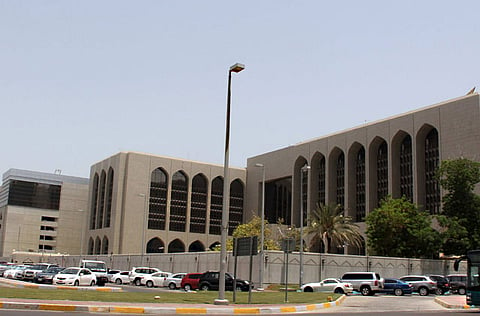UAE Banks Federation proposes exposure limit
Move designed to reduce risk and prevent repetition of corporate debt crisis

Abu Dhabi: After its decision in September 2012 to postpone introducing restrictions on commercial banks’ exposure to state-linked debt and requirements for them to hold liquid assets following complaints from the banks, the UAE Banks Federation on Monday raised the final proposal on percentage limits that form the large exposure to the UAE Central Bank.
The UAE Banks Federation recommended the exclusion of marketable bonds and sukuks from the proposal and to apply means and purpose tests to determine whether the large exposure regulation applies to an entity, asking the Central Bank for a five-year term to fully comply with these regulations.
Giyas Gokkent, Group Chief Economist at NBAD, told Gulf News: “With regard to the large limit exposure: Bonds and sukuk are tradeable and, therefore, potentially liquid instruments.”
He added that bonds and sukuks are important instruments as they are rated. “This provides flexibility to the banking system and is an important element in liquidity management,” said Gokkent. “It would be disadvantageous for banks to divest highly rated and potentially liquid instruments. Banks’ demand for such instruments is an important source of funding for issuers as well.”
In a statement by the federation, Abdul Aziz Abdullah Al Ghurair, Chairman of UAE Banks Federation, said: “We are fully dedicated for continuous cooperation and consultation with the Central Bank to provide necessary proposals and best solutions to all current and future banking issues.”
Al Ghurair added that a special committee helped reach this proposal and the committee was represented by a number of banks including NBAD, Abu Dhabi Islamic Bank (ADIB), Emirates NBD, Dubai Islamic Bank (DIB) and National Bank of Fujairah NBF.
A Central Bank source told Gulf News that this move by the Central Bank aims to reduce risk for banks and prevent any repetition of corporate debt crisis.
The Central Bank had said that any bank’s lending to the UAE federal governments and its related entities would be capped at 100 per cent of its capital base compared to 25 per cent for lending to a single borrower.
The federation had earlier complained that any rush “to cut exposure to state debt would have badly affected economic development and would have damaged profitability of the banking system in the UAE because many development projects are underway”.
Last year, the Central Bank had also reviewed the previous feedback on the amendments to the large exposures regulations, deciding to postpone the execution of the regulation until all of its items are scrutinised with the banks.
Sign up for the Daily Briefing
Get the latest news and updates straight to your inbox



